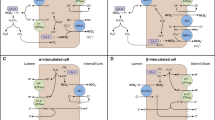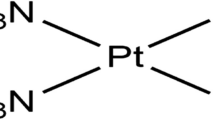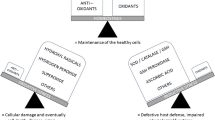Abstract
In the present study, we investigated the effects of lycopene on the expression of organic anion transporters (OATs), organic cation transporters (OCTs), and multidrug resistance-associated proteins (MRPs) of cisplatin-induced nephrotoxicity in rats. Twenty-eight 8-week-old Wistar rats were divided into four groups: control, lycopene-treated (6 mg/kg BW by oral gavage), cisplatin-treated (7 mg/kg BW, IP), and lycopene in combination with cisplatin-treated groups. In the presence of cisplatin, serum urea nitrogen (urea-N) (48.5 vs. 124.3 mg/dl) and creatinine (0.29 vs. 1.37 mg/dl) levels and the kidney efflux transporters MRP2 and MRP4 levels were significantly increased, whereas OAT1, OAT3, OCT1, and OCT2 levels in kidney were decreased in the treated rats compared with normal control rats. However, administration of lycopene in combination with cisplatin resulted in a reduction in the serum urea-N (124.3 vs. 62.4) and creatinine (1.37 vs. 0.40) levels and the kidney efflux transporters MRP2 and MRP4 proteins in the kidneys. Administration of lycopene to acute renal injury-induced rats largely upregulated the organic anion transporters (OAT1 and 3) and organic cation transporters (OCT1 and 2) to decrease the side effects of cisplatin. The present study suggests that lycopene synergizes with its nephroprotective effect against cisplatin-induced acute kidney injury in rats.

Similar content being viewed by others
References
Meyer KB, Medias E (1994) Cisplatin nephrotoxicity. Miner Electrolyte Metab 20:201–213
Luke DR, Vadiei K, Lopez-Berestein G (1992) Role of vascular congestion in cisplatin-induced acute renal failure in the rat. Nephrol Dial Transplant 7:1–7
Kang DG, Lee AS, Mun YJ et al (2004) Butein ameliorates renal concentrating ability in cisplatin-induced acute renal failure in rats. Biol Pharm Bull 27:366–370
Ashrafi F, Haghshenas S, Nematbakhsh M et al (2012) The role of magnesium supplementation in cisplatin-induced nephrotoxicity in a rat model: no nephroprotectant effect. Int J Prev Med 3:637–643
Sahin K, Sahin N, Kucuk O (2010) Lycopene and chemotherapy toxicity. Nutr Cancer 62:988–995
Kim YK, Jung JS, Lee SH et al (1997) Effects of antioxidants and ca2/in cisplatin-induced cell injury in rabbit renal cortical slices. Toxicol Appl Pharmacol 146:261–269
Mora L dO, Antunes LMG, Francescato HDC et al (2003) The effects of oral glutamine on cisplatin-induced nephrotoxicity in rats. Pharmacol Res 47:517–522
Velmurugan ST, Santhiya ST, Nagini S (2004) Protective effect of S-allylcysteine and lycopene in combination against N-methyl-N′-nitro-N-nitrosoguanidine-induced genotoxicity. Pol J Pharmacol 56:241–245
Tapiero H, Townsend DM, Tew KD (2004) The role of carotenoids in the prevention of human pathologies. Biomed Pharmacother 58:100–110
Cohen LA (2002) A review of animal model studies of tomato carotenoids, lycopene, and cancer chemoprevention. Exp Biol Med 227:864–868
Kucuk O, Sarkar FH, Sakr W et al (2001) Phase II randomized clinical trial of lycopene supplementation before radical prostatectomy. Cancer Epidemiol Biomarkers Prev 10:861–868
Kucuk O (2002) Chemoprevention of prostate cancer. Cancer Metastasis Rev 21:111–124
Kucuk O, Sarkar FH, Djuric Z et al (2002) Effects of lycopene supplementation in patients with localized prostate cancer. Exp Biol Med 227:881–885
Amin AR, Kucuk O, Khuri FR et al (2009) Perspectives for cancer prevention with natural compounds. J Clin Oncol 27:2712–2725
Seren S, Lieberman R, Bayraktar UD et al (2008) Lycopene in cancer prevention and treatment. Am J Ther 15:66–81
Yilmaz S, Atessahin A, Sahna E et al (2006) Protective effect of lycopene on adriamycin-induced cardiotoxicity and nephrotoxicity. Toxicology 218:164–171
Dogukan A, Tuzcu M, Agca CA et al (2011) A tomato lycopene complex protects the kidney from cisplatin-induced injury via affecting oxidative stress as well as Bax, Bcl-2, and HSPs expression. Nutr Cancer 63:427–434
Atessahin A, Yilmaz S, Karahan I et al (2005) Effects of lycopene against cisplatin-induced nephrotoxicity and oxidative stress in rats. Toxicology 212:116–123
Endou H (1998) Recent advances in molecular mechanisms of nephrotoxicity. Toxicol Lett 28:29–33
Inui KI, Masuda S, Saito H (2000) Cellular and molecular aspects of drug transport in the kidney. Kidney Int 58:944–958
Roch-Ramel F, Besseghir K, Murer H (1992) Renal excretion and tubular transport of organic anions and cations. In: Windhager EE (ed) Renal physiology, handbook of physiology, 2nd edn. Oxford University Press, New York, pp 2189–2262
Ullrich KJ (1994) Specificity of transporters for ‘organic anions’ and ‘organic cations’ in the kidney. Biochim Biophys Acta 1197:45–62
Launay-Vacher V, Izzedine H, Karie S et al (2006) Renal tubular drug transporters. Nephron Physiol 103:97–106
Morisaki T, Matsuzaki T, Yokoo K et al (2008) Regulation of renal organic ion transporters in cisplatin-induced acute kidney injury and uremia in rats. Pharm Res 25:2526–2533
Huang Q, Dunn RT 2nd, Jayadev S et al (2001) Assessment of cisplatin-induced nephrotoxicity by microarray technology. Toxicol Sci 63:196–207
Demeule M, Brossard M, Beliveau R (1999) Cisplatin induces renal expression of P-glycoprotein and canalicular multispecific organic anion transporter. Am J Physiol 277:832–840
Ulu R, Dogukan A, Tuzcu M et al (2012) Regulation of renal organic anion and cation transporters by thymoquinone in cisplatin induced kidney injury. Food Chem Toxicol 50:1675–1679
Shimeda Y, Hirotani Y, Akimoto Y et al (2005) Protective effects of capsaicin against cisplatin-induced nephrotoxicity in rats. Biol Pharm Bull 28:1635–1638
Sung MJ, Kim DH, Jung YJ et al (2008) Genistein protects the kidney from cisplatin-induced injury. Kidney Int 4:1538–1547
Farombi EO, Shrotriya S, Na HK et al (2008) Curcumin attenuates dimethylnitrosamine-induced liver injury in rats through Nrf2-mediated induction of heme oxygenase-1. Food Chem Toxicol 46:1279–1287
Sahin K, Tuzcu M, Gencoglu H et al (2010) Epigallocatechin-3-gallate activates Nrf2/HO-1 signaling pathway in cisplatin-induced nephrotoxicity in rats. Life Sci 87:240–245
Sun H, Frassetto L, Benet LZ (2006) Effects of renal failure on drug transport and metabolism. Pharmacol Ther 109:1–11
Nowicki MT, Aleksunes LM, Sawant SP et al (2008) Renal and hepatic transporter expression in type 2 diabetic rats. Drug Metab Lett 2:11–17
Aleksunes LM, Augustine LM, Scheffer GL et al (2008) Renal xenobiotic transporters are differentially expressed in mice following cisplatin treatment. Toxicology 250:82–88
Acknowledgments
The authors thank the Turkish Academy of Sciences (TUBA) for supporting (in part) this study.
Conflict of Interest
The authors declare that they have no conflict of interest.
Author information
Authors and Affiliations
Corresponding author
Rights and permissions
About this article
Cite this article
Erman, F., Tuzcu, M., Orhan, C. et al. Effect of Lycopene Against Cisplatin-Induced Acute Renal Injury in Rats: Organic Anion and Cation Transporters Evaluation. Biol Trace Elem Res 158, 90–95 (2014). https://doi.org/10.1007/s12011-014-9914-x
Received:
Accepted:
Published:
Issue Date:
DOI: https://doi.org/10.1007/s12011-014-9914-x




